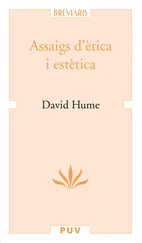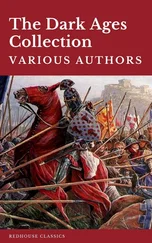Such was the horde which swept into Europe in the fourth century, encamped in Dacia and in the land between the Theiss and Danube, and held sway over the peoples in the south Russian steppes, the Ostrogoths, Heruls, and Alans. 33
For fifty years after their establishment north of the Danube, we hear little of the Huns. They made a few raids into the Roman provinces, and they were ready to furnish auxiliaries, from time to time, to the Empire. At the time of the death of Theodosius they were probably regarded as one more barbarian enemy, neither more nor less formidable than the Germans who threatened the Danubian barrier. We may conjecture that the organisation of the horde had fallen to pieces soon after their settlement in Europe. 34No one could foresee that after a generation had passed Rome would be confronted by a large and aggressive Hunnic empire.
APPENDIX:
ON THE NUMBERS OF THE BARBARIANS
The question of the numbers of the German invaders of the Empire is so important that it seems desirable to collect here some of the principal statements of our authorities, so as to indicate the character of the evidence. These statements fall into two classes.
(1) Large numbers, running into hundreds of thousands.
α. Eunapius appears to say that the fighting forces of the Visigoths when they crossed the Danube in A.D. 376 numbered 200,000, fr. 6, De leg. gent. p595. The text of the passage, however, is corrupt.
β. The mixed host of barbarians who invaded Italy in A.D. 405-406 is variously stated to be 400,000 , 200,000 , or more than 100,000 strong. See below, Chap. V § 7. It is to be observed that the lowest of these figures is given (by Augustine) in an argument where a high figure is effective.
γ. Two widely different figures are recorded for the number of those who fell (on both sides) in the battle of Troyes in A.D. 451, 300,000 and 162,000. See below, Chap. IX § 4.
δ. 150,000 is given (by Procopius) as the number of the Ostrogoths who besieged Rome in A.D. 537. This can be shown, from the circumstances, to be incredible. See below, Chap. XVIII § 5.
ε. The Franks are made to boast, in A.D. 539, that they could send an army of 500,000 across the Alps (Procopius, B. G. II.28, 10). Then they were a great power and had many subjects. A few months before, one of their kings had invaded Italy with 100,000 men ( ib. 25, 2); but the number is highly suspicious.
(2) Small numbers.
α. It is difficult to forgive Ammian, who was a soldier and well versed in military affairs, for not stating the number of the forces engaged on either side in the battle of Hadrianople in A.D. 378. The one indication he gives is that the Roman scouts by some curious mistake reported that the Visigothic forces numbered only 10,000. It is difficult to believe that this mistake could have been made if the Goths, with their associates, had had anything like 50,000 to 100,000 men (Hodgkin’s estimate for the army of Alaric), much less the 200,000 of Eunapius. So far as it goes, the indication points rather to a host of not more than 20,000.
β. After Alaric’s siege of Rome in 408, it is stated that his army, reinforced by a multitude of fugitive slaves from Rome, was about 40,000 strong. See below, Chap. VI § 1.
γ. The total number of the Vandal people (evidently including the Alans who were associated with them), not merely of the fighting forces, is stated to have been 80,000 in A.D. 429 (see below, Chap. VIII § 2). They were then embarking for Africa and it was necessary to count them in order to know how many transport ships would be needed. This figure has, therefore, particular claims on our attention.
δ. The facts we know about the Vandalic and Ostrogothic wars in the sixth century, as related by Procopius, consistently point to the conclusion that the fighting forces of the Vandals and the Ostrogoths were to be counted by tens, not by hundreds, of thousands. Procopius does not give figures (with the exception of one, which is a deliberate exaggeration, see above, (1) δ), but the details of his very full narrative and the small number of the Roman armies which were sent against them and defeated them make this quite clear.
ε. The total number of the warriors of the Heruls, who were a small people, in the sixth century was 4500 (Procopius, B. G. III.34, 42-43).
Intermediate between these two groups, but distinctly inclining towards the first, is the statement of Orosius, Hist. VII.32.11, that the armed forces of the Burgundians on the Rhine numbered more than 80,000. If the figure has any value it is more likely to represent the total number of the Burgundian people at the beginning of the fifth century.
Schmidt has observed ( Gesch. der deutschen Stämme , i.46 sqq. ) that certain numbers in the enumerations of German forces by Roman writers constantly recur (300,000, 100,000, 60,000, etc.) and are therefore to be suspected.
Delbrück ( Gesch. der Kriegskunst , ii.34 sqq. ) discusses the density of population in ancient Germany and concludes that it was from four to five to the square kilometre.
CHAPTER V: THE SUPREMACY OF STILICHO
§ 1. Stilicho and Rufinus (A.D. 395)
THE Emperor Theodosius the Great died at Milan on January 17, A.D. 395. His wishes were that his younger son, Honorius, then a boy of ten years, should reign in the west, where he had already installed him, and that his elder son, Arcadius, whom he had left as regent at Constantinople when he set out against the usurper Eugenius, should continue to reign in the east. 1But Theodosius was not willing to leave his youthful heirs without a protector, and the most natural protector was one bound to them by family ties. Accordingly on his deathbed he commended them to the care of Stilicho, 2an officer of Vandal birth, whom he had raised for his military and other talents to the rank of Master of Both Services in Italy, 3and, deeming him worthy of an alliance with his own house, had united to his favourite niece, Serena. It was in this capacity, as the husband of his niece and a trusted friend, that Stilicho received the last wishes of the Emperor; it was as an elder member of the same family that he could claim to exert an influence over Arcadius. Of Honorius he was the natural protector, for he seems to have been appointed regent of the western realm during his minority.
Arcadius was in his seventeenth or eighteenth year at the time of his father’s death. He was of short stature, of dark complexion, thin and inactive, and the dulness of his wit was betrayed by his speech and by his sleepy, drooping eyes. 4His mental deficiency and the weakness of his character made it inevitable that he should be governed by the strong personalities of his court. Such a commanding personality was the Praetorian Prefect of the East, Flavius Rufinus, a native of Aquitaine, who presented a marked contrast to his sovran. He was tall and manly, and the restless movements of his keen eyes and the readiness of his speech, though his knowledge of Greek was imperfect, were no deceptive signs of his intellectual powers. He was ambitious and unprincipled, and, like most ministers of the age, avaricious, and he was a zealous Christian. He had made many enemies by acts which were perhaps more than commonly unscrupulous, but we cannot assume that all the prominent officials 5for whose fall he was responsible were innocent victims of his malice. But it is almost certain that he had formed the scheme of ascending the throne as the Imperial colleague of Arcadius.
This ambition of Rufinus placed him at once in an attitude of opposition to Stilicho, 6who was himself suspected of entertaining similar schemes, not however in his own interest, but for his son Eucherius. He certainly cherished the design of wedding his son to the Emperor’s stepsister, Galla Placidia. 7The position of the Vandal, who was connected by marriage with the Imperial family, gave him an advantage over Rufinus, which was strengthened by the generally known fact that Theodosius had given him his last instructions. Stilicho, moreover, was popular with the army, and for the present the great bulk of the forces of the Empire was at his disposal; for the regiments united to suppress Eugenius had not yet been sent back to their various stations. Thus a struggle was imminent between the ambitious minister who had the ear of Arcadius, and the strong general who held the command and enjoyed the favour of the army. Before the end of the year this struggle began and ended in a curious way; but we must first see how a certain scheme of Rufinus had been foiled by an obscurer but wilier rival nearer at hand.
Читать дальше












